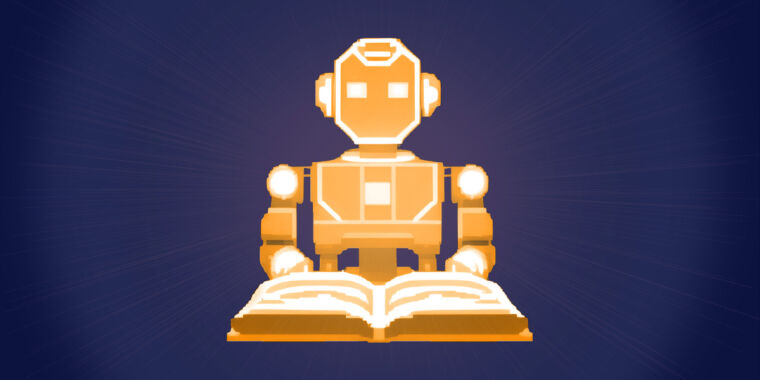Claude AI by Anthropic Analyzes Books Instantly
Core Concepts
Claude AI by Anthropic can now analyze entire books in seconds, revolutionizing text processing and comprehension.
Abstract
Anthropic's Claude AI has been upgraded to process an entire book's worth of material in under a minute, thanks to its expanded context window. This enhancement allows the AI model to quickly analyze and understand vast amounts of text, showcasing significant advancements in language processing technology. The ability to interactively answer questions about texts or analyze their meanings demonstrates the practical applications of this innovation for businesses and researchers alike. Anthropic's development of Claude AI positions it as a strong competitor to industry giants like OpenAI, with potential implications for the future of artificial intelligence.
Anthropic’s Claude AI can now digest an entire book like The Great Gatsby in seconds
Stats
Claude AI can now analyze 100,000 tokens or approximately 75,000 words in less than a minute.
OpenAI's GPT-4 LLM has context window lengths of 4,096 tokens when used with ChatGPT and up to 32,768 tokens via the GPT-4 API.
Anthropic received a $300 million investment from Google in late 2022.
Quotes
"By expanding Claude's context window, we have unlocked new possibilities for interactive conversations and information extraction from texts." - Anthropic spokesperson
Key Insights Distilled From
by Benj Edwards at arstechnica.com 05-12-2023
https://arstechnica.com/information-technology/2023/05/anthropics-claude-ai-can-now-digest-an-entire-book-like-the-great-gatsby-in-seconds/
Deeper Inquiries
How might the integration of larger context windows impact other areas beyond text analysis
The integration of larger context windows in language models like Claude can have far-reaching impacts beyond text analysis. One significant area that could benefit is customer service and support. With the ability to process more information at once, AI models can provide more personalized and accurate responses to customer queries, leading to improved customer satisfaction. Additionally, in fields like healthcare, where vast amounts of data need to be analyzed quickly and accurately, larger context windows can enhance diagnostic capabilities by allowing AI systems to consider a broader range of patient information simultaneously.
What potential ethical concerns could arise from the rapid advancement of language models like Claude
The rapid advancement of language models such as Claude raises several ethical concerns that need careful consideration. One major issue is the potential for misuse or manipulation of these powerful AI systems. As they become more adept at processing large volumes of data quickly, there is a risk that they could be used for spreading misinformation or propaganda on a massive scale. Moreover, the use of AI in decision-making processes may raise questions about accountability and transparency if errors occur due to biases encoded in the model's training data. Privacy concerns also arise as these models have access to vast amounts of personal data during their interactions.
How does the collaboration between smaller companies like Anthropic and tech giants like Google influence innovation in artificial intelligence
The collaboration between smaller companies like Anthropic and tech giants like Google plays a crucial role in driving innovation in artificial intelligence. Smaller companies often bring fresh perspectives and agile development practices that can complement the resources and infrastructure provided by tech giants. This partnership allows for faster experimentation with new ideas and technologies while leveraging the expertise and reach of established players in the industry.
Furthermore, collaborations between smaller companies and tech giants facilitate knowledge sharing and cross-pollination of ideas across different organizations. This exchange helps accelerate progress in AI research and development by combining diverse skill sets and resources towards common goals.
Overall, such partnerships create a dynamic ecosystem where innovation thrives through synergies between small-scale innovators and industry leaders like Google, ultimately pushing the boundaries of what is possible in artificial intelligence technology.
0
More on Artificial Intelligence
